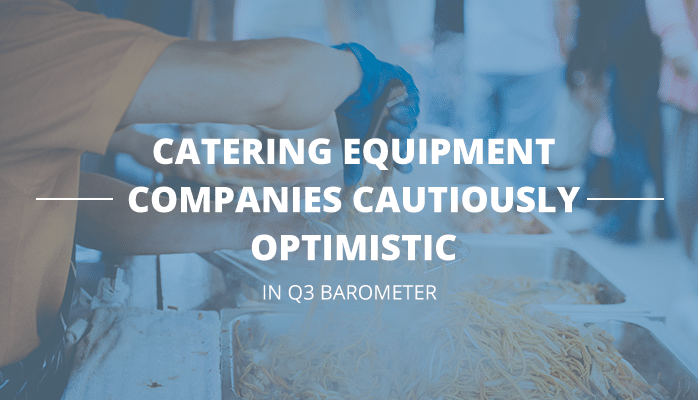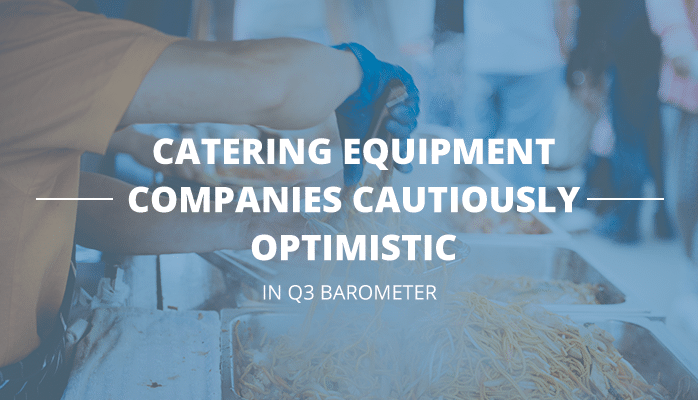


The Catering Equipment Suppliers Association (CESA) Q3 business barometer was interesting reading. Here’s my take on the results and what it means for you.
Uncertainty surrounding Brexit is the number one concern…
42% of CESA’s respondents are understandably nervous about how their business will perform over the next 12 months, with 80% citing Brexit-related confusion as their biggest worry.
Indeed, as the pound has fallen, the cost of importing from European manufacturers has increased. And with no firm Brexit plans in sight, the instability is set to continue at least until the end of Q1 2017. (Although, that said, a more competitive pound also opens up greater export opportunities as high-quality British goods become cheaper to sell abroad.)
And Brexit does raise interesting issues.
For example, there are question marks over the recently introduced EU legislation on energy efficiency standards for certain types of commercial refrigeration equipment. While it’s likely that a post-Brexit UK Government will continue to support green initiatives, will a new framework allow cheaper, less efficient models back on the market?
That could be very beneficial for the industry.
…But confidence in the short-term market is high
More than 40% of catering equipment companies reported an increase in turnover since last year, and 52% enjoyed higher sales. 50% anticipate turnover will rise in the short term.
The annual worth of the British catering equipment market alone is estimated at around £1 billion – a strong foundation for growth.
Out-of-home spending will drive growth
Household spending is on the rise for out-of-home (OOH) visits, thanks in part to continued innovations by restaurants keen to appeal to consumers who increasingly look for
- Convenience: e.g., food on the go, street food, delivery services
- Originality: e.g., fusion food, lesser-known international food
- Healthy options: e.g., free from, responsibly sourced
These trends create lucrative opportunities for catering equipment suppliers. As the walls come down between back and front of house, chefs are looking to upgrade and improve equipment so they achieve the high hygiene standards and green credentials they need to keep up with customer demands.
Only time will tell how Brexit affects the industry, but opportunities are there for British catering equipment companies able to help chefs capitalise on the current trend for innovative dining options.
So – how does this industry snapshot compare to what you’re experiencing in your business?
Key takeaways
- British catering equipment companies are reporting growth in year-on-year sales
- The market as whole continues to grow despite Brexit-related uncertainty
- Growth in British out-of-home (OOH) spending signals lucrative opportunities for catering equipment companies
ref to : The Caterer
Our infographic ‘Flexible Finance for Catering Equipment: The Business Case’ breaks down the financial pressures and risks catering businesses face, and tells you how a different approach to buying catering equipment will give you more flexibility (while keeping employees happier and helping you deliver better customer service).
This post originally appeared on LinkedIn.



